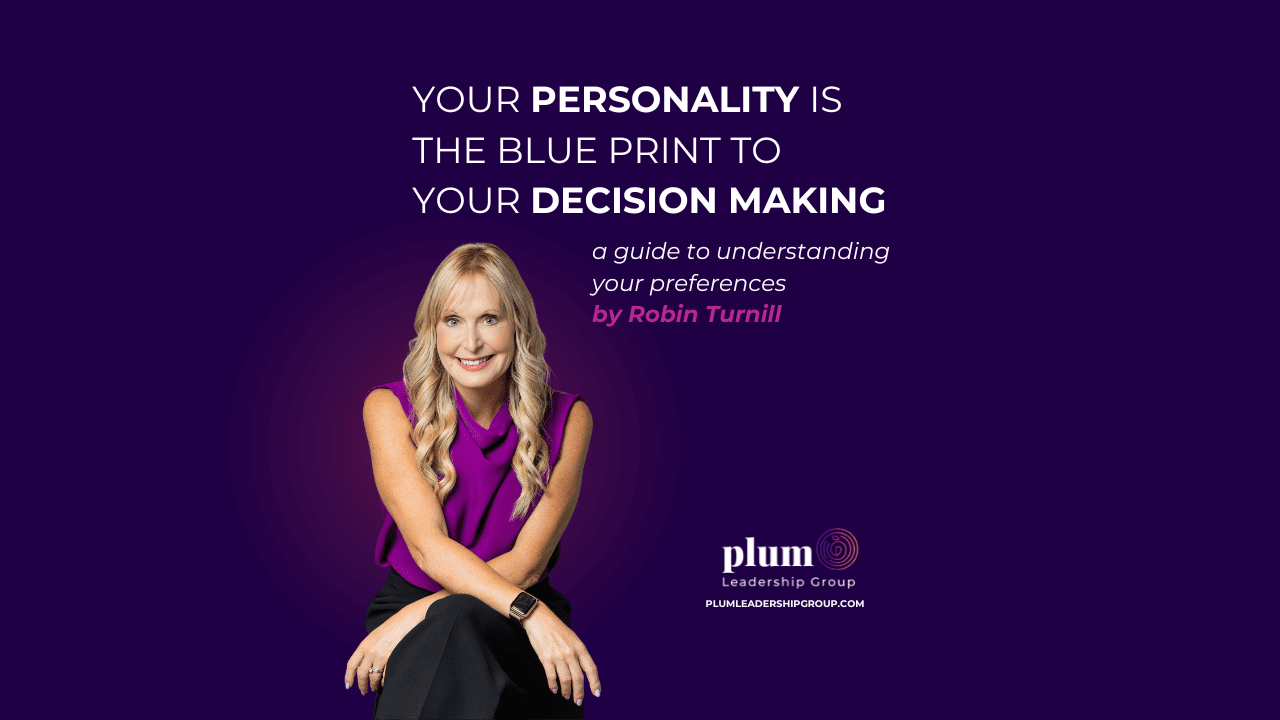By: Robin Turnill
Your Personality Holds the Blueprint for Every Choice You Make
Have you ever wondered why some decisions feel effortless while others leave you second-guessing yourself? The way you make choices is deeply influenced by your personality traits, shaping everything from your daily routines to major life decisions.
The Myers-Briggs Type Indicator (MBTI) is one of the most widely used personality frameworks for understanding these tendencies. Whether you are an introvert or extrovert, a thinker or feeler, recognizing your natural decision-making style can improve communication, teamwork, and problem-solving in both personal and professional settings.
What Is the Myers-Briggs Type Indicator (MBTI)?
In the 1940s, Katherine Cook Briggs and Isabel Briggs Myers developed the MBTI to help individuals understand their own and others’ personalities. Their belief was that by recognizing differences, people could collaborate more effectively and reduce conflict.
The MBTI framework evaluates personality based on four key dimensions that influence decision-making:
- Energy Source: Extraversion (E) vs. Introversion (I)
- Information Processing: Sensing (S) vs. Intuition (N)
- Decision-Making Style: Thinking (T) vs. Feeling (F)
- Need for Structure: Judging (J) vs. Perceiving (P)
These preferences combine to create 16 distinct personality types, each with a unique approach to thinking, working, and making decisions.
How Your Personality Affects Decision-Making
1. Extraversion vs. Introversion: Where Do You Draw Energy?
- Extraverts (E) thrive on interaction and external stimulation, often making quick decisions through action.
- Introverts (I) prefer to process information internally before acting, needing time alone to reflect and recharge.
Key Takeaway: If you struggle with decision fatigue, recognizing your energy source can help you structure your workflow accordingly.
2. Thinking vs. Feeling: Logic vs. Emotion in Choices
- Thinkers (T) prioritize logic, facts, and objective reasoning, making decisions based on what “makes sense.”
- Feelers (F) consider emotions, values, and relationships, often choosing paths that promote harmony.
Key Takeaway: Neither approach is better—understanding whether you lean toward data-driven or emotion-based decisions can improve how you interact with others.
3. Sensing vs. Intuition: Details vs. Big Picture
- Sensors (S) focus on tangible details, trusting facts and past experiences.
- Intuitives (N) look at patterns and possibilities, often relying on gut instincts.
Key Takeaway: In decision-making, detail-oriented people ensure practicality, while big-picture thinkers drive innovation. A balanced team benefits from both perspectives.
4. Judging vs. Perceiving: Structure vs. Flexibility
- Judgers (J) prefer structure, planning, and closure, often making decisions quickly to maintain organization.
- Perceivers (P) are adaptable, open-ended, and comfortable leaving decisions open as new information emerges.
Key Takeaway: If you find yourself frustrated by rigid plans or last-minute changes, recognizing this preference can help you better navigate workplace and relationship dynamics.
Why Personality Awareness Improves Decision-Making
Understanding your MBTI type is not just about self-awareness—it is a tool for enhancing collaboration, productivity, and adaptability. Here’s why it matters:
- Workplace Efficiency: Teams with diverse personalities balance strategy and execution—big-picture thinkers offer visionary ideas, while detail-oriented individuals ensure follow-through.
- Stronger Relationships: Recognizing how others process decisions reduces misunderstandings and improves communication.
- Personal Growth: Awareness of your own decision-making tendencies helps you challenge biases and expand your thinking.
Understanding personality types allows you to make better, more informed decisions, whether you are choosing a career, resolving conflicts, or managing a team.
How to Apply This Knowledge
If you have not taken the Myers-Briggs test, consider doing so to better understand your own tendencies. From work environments to relationships, awareness of your decision-making patterns can help you communicate more effectively, work more efficiently, and approach challenges with greater confidence.
Work With Us to Discover Your MBTI Type
Want personalized guidance on understanding and applying your MBTI results? We specialize in helping individuals and teams unlock their full potential through assessments and coaching. Contact us today to learn more about how we can help you leverage your strengths for better decision-making and collaboration.

